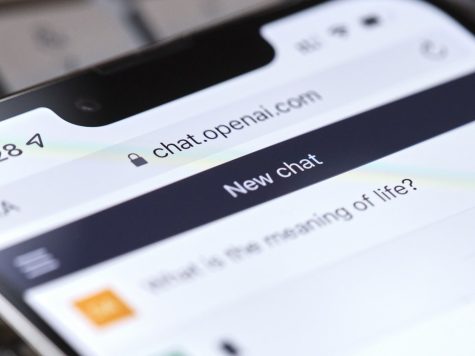Illegal downloading: Is it really that bad?
In November 2011, stand-up comedian Louis CK released his latest comedy special, Live at the Beacon Theater, on his website for $5. Within ten days, it made $1 million. CK included a letter with the download, a short reminder about who he is and what he’s doing. “Please bear in mind that I am not a company or a corporation. I’m just some guy. I paid for the production and posting of this video with my own money.” The comedian claims that there were significantly fewer torrents, or illegal download stations, for Live at the Beacon as a result.
On February 2013, the first full season of the television show House of Cards was released solely on Netflix. Two weeks later, it was the most watched program on Netflx. Kevin Spacey, star of House of Cards, said “…it’s giving the television and film industry an opportunity to learn the lesson the music industry didn’t learn. Give the people what they want, when they want it, in the form they want it in, at a reasonable price and they’ll buy it and they won’t steal it.”
But is it that simple? Was it because CK included this reminder that all of the money was going into the creator’s pocket? Or was it because, as Spacey said, he was giving them “the form they want it in, at a reasonable price”?
The answer is most likely both.
In the current age of constant news cycle, reputation is just as important as availability and internet presence is worth its weight in gold. You can make something easy to obtain, but if you are a larger corporation, or a corporation who is seen as untrustworthy and consumer un-friendly, good luck getting people to buy it. Phil Fish, a video game developer featured in the documentary Indie Game, came out with the PC version of Fez, a critically acclaimed video game, in May 2013. Fish is an independent developer who, not unlike Louis CK with Live at the Beacon, developed the game himself and almost all of the proceeds are going to him. Unlike CK, however, Fish has been seen unfavorably in the online community. He has been known to deride and hate his consumer base, calling gamers “the worst f***ing people” and Japanese games in particular as “just suck[ing].” This behavior has resulted in several torrents of his game numbering in the thousands.
Luckily, Fish views piracy in a very positive light. To quote from Fish’s Twitter, “A pirated copy is really just a step below a sold copy. You’re still showing interest, and hopefully, you still play and enjoy the game!” If Fish was viewed in a positive way, maybe the game would still be torrented. However, there is also the possibility that Fisc would have made twice the money he currently made with the release of the computer version of Fez and become a millionaire within ten days.
Despite this, there are some corporations that don’t make availability a priority. Fish, for all his faults, at least re-made the game for PC gamers (Fez was originally released solely through the Xbox 360 marketplace and therefore unavailable for PC or other console gamers), despite the fact he views computers as an inferior gaming system. Some conglomerates continue to produce critically acclaimed and money making media, but do not make it available for the wide range of people who want to be able to watch it. HBO, for example, produces the award-winning television series Game of Thrones, but has refused to stream the episodes online or even make them available for rental shortly after the Sunday premier. This tactic forces the incredibly dedicated fans of Game of Thrones to buy a membership to HBO, costing anywhere from fifteen to twenty dollars added on to their current cable bill.
Compare the price for HBO, which currently has twelve running series as well as a number of documentaries, sports and comedy specials and movies, with that of Netflix, which costs eight dollars per month and allows you to watch an unlimited amount of movies, and television programs. Those who don’t have cable, or can’t afford the additional cost, are forced to wait for an entire season to come out on iTunes, Amazon Prime, another streaming service, or DVD. Even then, it costs $30 to $35 just to stay caught up with their favorite series. If they don’t have the money for that, then torrenting starts to look like a good idea.
Game of Thrones is not hurting from a small “fandom,” but they are only making half the amount they could be making. By taking advantage of the various streaming platforms that have made it significantly easier to get a hold of your favorite shows, Game of Thrones could gain a much larger viewing audience and make considerably more money through ad revenue alone.
And It is possible for these corporations to make their product accessible and maintain a good reputation. When the video game company Valve found that there was no current network to allow their games to be downloaded, they developed the Steam Marketplace. Users can join free and can choose to pay for any of the over two thousand games offered. This form of digital distribution has made a considerable amount of money for Valve and other developers, allowing video game developers to offer a high accessibility for their games. Up to 70 percent of the proceeds go directly to the developers, as opposed to the mere thirty percent in retail markets. This results in Steam having a 50 to 70 percent control of the digital distribution market, a $4 billion field. This is not to say that Valve hasn’t had any problems; the company was caught up in a lawsuit against Vivendi Universal and has been sued by Blizzard regarding copyright and trademarks. Even with these problems, Valve has always portrayed a “customer first” attitude, which is not only good business sense, but necessary in the current internet age.
There is no way to stop the free flow of information that has quickly become commonplace. Torrents and illegal downloading are time consuming and expensive to track and the people who do it are too numerous to punish. However, if a company makes their product easy to access and maintains a good reputation, then there will be fewer torrents and fewer illegal downloads of their product, resulting in a larger amount of money for all those involved. Any movie that is on the Netflix streaming platform has significantly fewer torrents, any videogame that is on Steam has fewer illegal downloads.
Accessible content is the future. After the success of Louis CK’s Live at the Beacon Theater, comedian Aziz Ansari released his own special from his website for five dollars. Shortly after House of Cards was released, Netflix announced that it had more subscribers than the HBO network. Illegal downloading will not stop and legal prosecution has not dissuaded users. The only action that corporations can take to stop illegal downloading is make it so that it is easier to pay; easier to endure a few commercials than to download a movie or a game, easier to pay a small fee to a subscription service and watch or play hundreds of movies or games. Nobody wants to steal media. The world wants to pay for it. The question is: will you let us?
Zack Hardy can be reached at [email protected]





